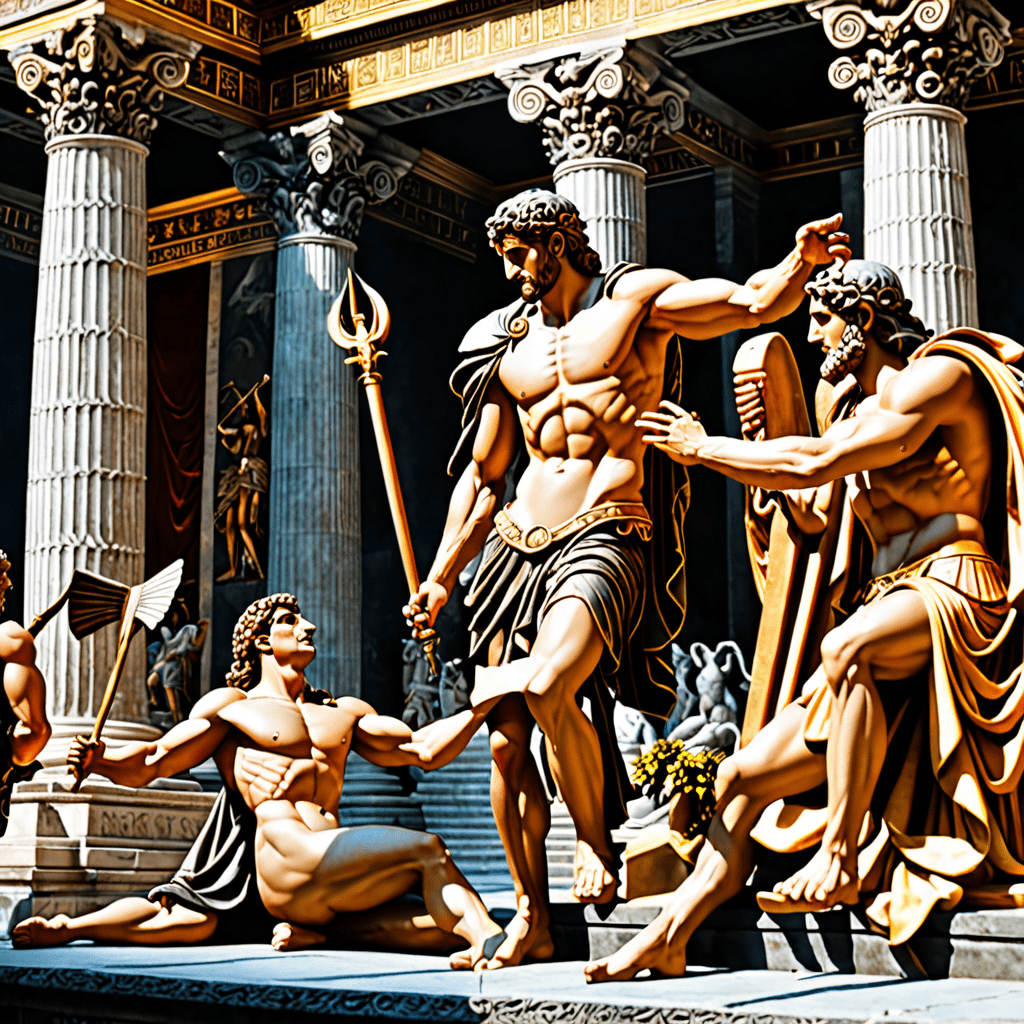Exploring the Concept of Truth and Deception in Roman Mythology
Introduction to Roman Mythology
Roman mythology, steeped in rich lore and captivating tales, comprises a plethora of gods, goddesses, and legendary figures. Truth and deception play significant roles in various Roman myths, shaping the actions and narratives of these mythical beings.
The Role of Truth in Roman Mythology
Truth is often revered and upheld as a sacred virtue in Roman mythology. Deities like Veritas, the goddess of truth, represent the importance of honesty and authenticity. Instances where truth prevails, such as in the stories of Apollo and the Oracle of Delphi, showcase the power and significance of truth in Roman myths.
Exploring Deception in Roman Mythology
Deception, on the other hand, is a prevalent theme in Roman mythology, depicted through cunning gods like Mercury, known for his tricks and deceitful tactics. Myths like that of Eris, the goddess of discord, highlight the repercussions of deception and the chaos it can sow among both mortals and immortals.
The Interplay Between Truth and Deception
The complex relationship between truth and deception in Roman mythology provides insight into the nuances of human nature and the divine realm. Stories of gods like Janus, who embodies duality and deceit, illustrate how these conflicting forces intertwine to shape the mythological world.
FAQ: Exploring the Concept of Truth and Deception in Roman Mythology
What is the significance of truth and deception in Roman mythology?
In Roman mythology, the concepts of truth and deception play crucial roles in shaping the narratives of gods, goddesses, and legendary figures. Truth often symbolizes honor, integrity, and justice, while deception represents cunning, manipulation, and trickery.
How do Roman myths depict truth and deception?
Roman myths often showcase gods like Mercury, known for his cunning and trickery, embodying the elements of deception. On the other hand, deities like Veritas (Truth) personify the virtue of honesty and sincerity in Roman culture.
What are some examples of truth and deception in Roman mythology?
One of the prominent tales involving truth and deception is the myth of Prometheus, who deceived Zeus to benefit humankind, showcasing the blurred lines between right and wrong in pursuit of truth. Additionally, the story of the Trojan Horse in the Aeneid highlights deception as a strategy in war.
How do truth and deception in Roman myths reflect human nature?
The portrayal of truth and deception in Roman myths reflects the complexities of human nature, illustrating the fine balance between honesty and deceit that individuals often navigate in their lives. These myths provide insights into moral dilemmas and ethical decision-making processes.





